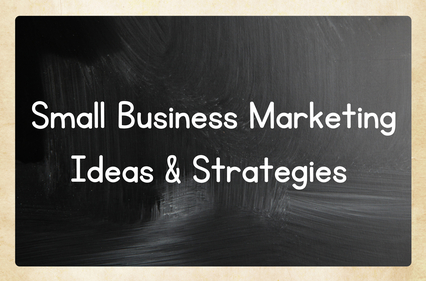
Email Marketing
Email Marketing is one of the best, most direct lines of communication in business advertising. A consumer’s inbox is a very personal environment, and an excellent place to convert potential customers into loyal ones. Email advertisements can support graphics, numerous links, and customizable content that drive consumers to your small business website. The key to a successful campaign is to send out useful content that will separate your emails from the inundation of spam that the average user must cope with. All in all, email is extremely inexpensive when compared to other marketing techniques: the return-on-investment is about 4300% according to the Direct Marketing Association.
Social Media Marketing
The effectiveness of Social Media Marketing stems from its intimacy with consumers. Social Media Marketing relies upon word-of-mouth, giving your small business a forum for people to highlight what they love about your brand to their friends and relatives. A savvy small business owner will select the most well-suited social media platforms to advertise their brand; for example, bloggers may choose Tumblr to tout their writing, while fashion marketers may select Pinterest as their platform of choice. By carefully timing its business advertising on social media and fostering a conversation about the brand, the best small business can develop a ubiquitous presence in today’s marketing universe.Text Marketing
Nearly everybody carries a cell phone these days. Billions of text messages are sent in the US alone, and mobile users are more likely to access texts messages than any other form of business advertising – the open rate of all text messages is nearly 98%. Text Marketing encourages and drives mobile users to engage via a number of marketing strategies, including contests, loyalty programs, and geo-targeted marketing. Because text marketing is so regulated and thus messages are not simply routed to a spam folder, consumers are often personally engaged in text conversations. The personal nature of Text Marketing allows for targeted, tailored messages to be sent to customers, galvanizing the customers’ relationship with you, the small business owner.Voice Broadcasting
In this era of impersonal connections, small business owners can provide an actual voice at the other end of the line – a comfortable, reassuring way to communicate with customers. With the right kind of script and a succinct list of options, many customers prefer this level of interaction because it feels more like an actual conversation. When coupled with opportunities for customer feedback and the ability to connect with a live agent, Voice Broadcasting has a great deal to offer the world of business advertising, especially in terms of conversion and tracking.Location-Based Marketing
Mobile devices nowadays can track and report a person’s location with accuracy. Local marketing takes advantage of these capabilities by offering well-timed push notifications and geo-relevant texts or calls directly to individuals’ mobile devices. By influencing customers through Location-Based Marketing with an appropriate call-to-action, the best small business can benefit from consumers in the proximity of its products and services. There are a great deal of customers who prefer to receive incentives when they are close to store fronts where they like to shop, and this kind of local marketing is the simplest way to reach these loyal consumers.
Effective business advertising in the year 2015 will depend on how willing the best small business owners are to utilize these technologies, thereby increasing the bandwidth of their interaction with customers. The smarted small businesses will employ several channels of small business advertising: promotional messages, personal interaction, information surrounding the brand, as well as integration of the various platforms. If you haven’t already, make sure to incorporate these important marketing techniques into your next business advertising campaign.